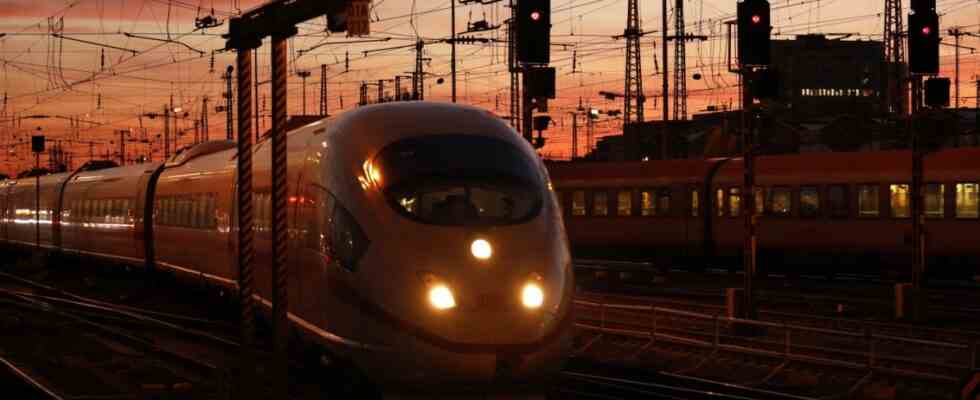For millions of Germans, Christmas begins somewhere at a train station these days. The public holidays and New Year’s Eve have always been among the periods with the most passengers in long-distance traffic. Unless another small miracle happens, however, the stations this year will in many places be less places of anticipation and more of frustration.
Ironically, at the festival, complaints about massive delays and train cancellations in Germany are piling up again. In long-distance traffic, only around 61 percent of the ICEs were on time in November. This put the rate at a level that passengers last had to experience in the snow chaos at the end of 2010 – only this time without snow. Things didn’t get any better in December. Overall, long-distance traffic delay statistics for the year as a whole could be more disastrous than they have been for quite a few years.
The train itself refers to many external influences on Friday. “The very high utilization of the network and intensive construction activity combined with external disruptive factors – such as the sabotage of infrastructure and the blocking of a main rail traffic route for several weeks – have significantly reduced punctuality this autumn,” says a spokesman. In fact, the attacks on important cables in Berlin and Essen paralyzed traffic in large parts of the country, without the railways being able to do anything about it.
It is also true that the thousands of construction sites with which Deutsche Bahn is struggling to modernize its own ailing infrastructure are a growing obstacle to more punctuality. A response from the federal government to a request from the Union faction on December 19 also shows that a lack of staff – and thus management problems – is to blame for the misery.
From January to the end of October, the railway statistics came up with more than 3,700 “incidents” in which unmanned or undermanned signal boxes and problems with personnel scheduling generally led to delays because, for example, the personnel did not reach their own train. According to Bahn, the cases caused by staff shortages were less than one percent of all delays. Nevertheless, the train has a proud 375,000 minutes of delay that were caused in this way.
Disputes between the railways and customers, which the arbitration board for public transport (SÖP) has to solve, are becoming more and more frequent. She recorded significantly more arguments. The SÖP has registered a total of 3,524 consumer complaints since January 2022 – mainly because of train cancellations and delays, it said this week. This corresponds to an increase of around 51 percent compared to 2021.
There is particularly strong demand on the route between Berlin and Munich
Especially on this Friday, the trains and platforms in the country are likely to be full again. According to Deutsche Bahn, a high volume of travel can also be expected on December 28th, i.e. after Christmas. Strong demand is expected on the route between Berlin and Munich, for example.
The group is trying to take countermeasures again and is using 80 additional trains across Germany to expand the offer on the public holidays. This means that 40,000 additional seats will be available over the Christmas period. According to Bahn, the service team will also be increased. According to the information, around 800 new employees will help passengers on board the trains by Christmas.
Incidentally, there will be no delay in a salary increase for railway board members. Punctually at the turn of the year, despite all the company’s quality problems, CEO Richard Lutz is to receive an annual fixed salary of EUR 990,000 instead of EUR 900,000 – that is ten percent more. At least the salary increase comes to the railways almost automatically – even without much discussion in the supervisory board. It is due for all board members who have been able to stay with the company for five years.

